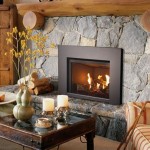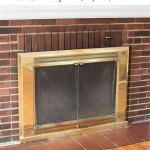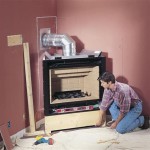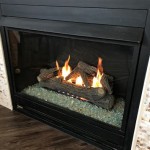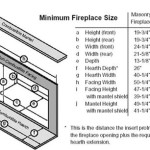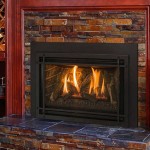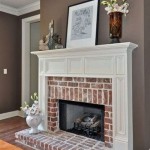Installing a Wood Burner in a Fireplace: A Comprehensive Guide
Installing a wood burner in an existing fireplace can be a rewarding project, offering the cozy ambiance of a real fire while potentially increasing your home's energy efficiency. However, it's essential to understand the process, regulations, and safety considerations involved before embarking on this endeavor. This comprehensive guide will provide you with the necessary information to make an informed decision and guide you through the installation process.
1. Planning and Preparation
Before you start considering specific wood burner models, it's crucial to plan and prepare for the installation. This includes:
- Determining Suitability: Not all fireplaces are suitable for wood burner installation. Assess the size, shape, and material of your fireplace opening. Consider the flue's condition and size, as it must be able to handle the wood burner's exhaust. Consult with a qualified heating engineer or a professional chimney sweep for an assessment.
- Obtaining Necessary Permits: Local building codes and regulations may require permits for wood burner installations. Check with your local authorities to understand the specific requirements and obtain any necessary licenses.
- Choosing a Wood Burner: Consider the size of your fireplace opening, the heat output required for your space, and the aesthetics of the wood burner. Research different models and brands, considering features like efficiency, safety features, and ease of use.
- Gathering Materials: Depending on the installation requirements, you might need materials like a hearth extension, heat-resistant insulation, firebrick, and a fireback.
2. The Installation Process
The installation process for a wood burner in a fireplace typically involves the following steps:
- Pre-Installation Preparations: Ensure the chimney is clean and free of obstructions. If necessary, a liner may need to be installed to improve the draft and safety. Carefully measure the fireplace opening to determine the appropriate wood burner size.
- Installing the Wood Burner: Position the wood burner in the fireplace opening, ensuring it sits level and securely. Follow the manufacturer's instructions for installation and any specific requirements for your model.
- Connecting the Flue: Connect the wood burner's flue pipe to the existing chimney flue. The connection should be airtight and secure to prevent smoke and gas leaks.
- Installing the Hearth Extension: If necessary, a hearth extension may be required to create a safe area around the wood burner. This helps prevent accidental burns and protects the flooring from excessive heat.
- Final Checks and Testing: After installation, double-check all connections and ensure the wood burner operates safely. It's essential to test the draft and ventilation system before using the burner.
3. Safety Considerations
Safety should be your top priority throughout the wood burner installation process. Here are some vital considerations:
- Chimney Inspections: Regular inspections of the chimney are crucial to ensure it is in good condition and free of obstructions. This helps prevent chimney fires and ensures proper ventilation.
- Fireplace Clearance: Maintain adequate clearance between the wood burner and surrounding combustible materials, as per the manufacturer's recommendations. This clearance helps prevent accidental fires.
- Smoke Alarms and Carbon Monoxide Detectors: Install working smoke alarms and carbon monoxide detectors in your home. These safety devices provide early warning in case of potential fire hazards.
- Proper Burning Practices: Use only dry, seasoned wood in the wood burner. Avoid burning flammable liquids or materials that could create harmful fumes.
Installing a wood burner in a fireplace can be a rewarding project, but it's crucial to prioritize safety and follow best practices throughout the process. Proper planning, professional installation, and regular maintenance will help ensure you enjoy the warmth and ambiance of a real fire for many years to come.

Converting A Fireplace To Wood Burning Stove Chesneys

How To Install A Wood Stove Step By Instructions

Chimney Installations

Log Burner Installation Guide

Converting A Fireplace To Wood Burning Stove Chesneys

Your Guide To Wood Stove Installation Full Service Chimney

Your Guide To Wood Stove Installation Full Service Chimney

Open Up Chimney Fireplace And Install A Woodburner In Tiverton Cosy Stoves

New Wood Burning Prefab Fireplaces Complete Fireplace Installs

Can You Install A Wood Stove In Fireplace Direct Stoves
Related Posts

